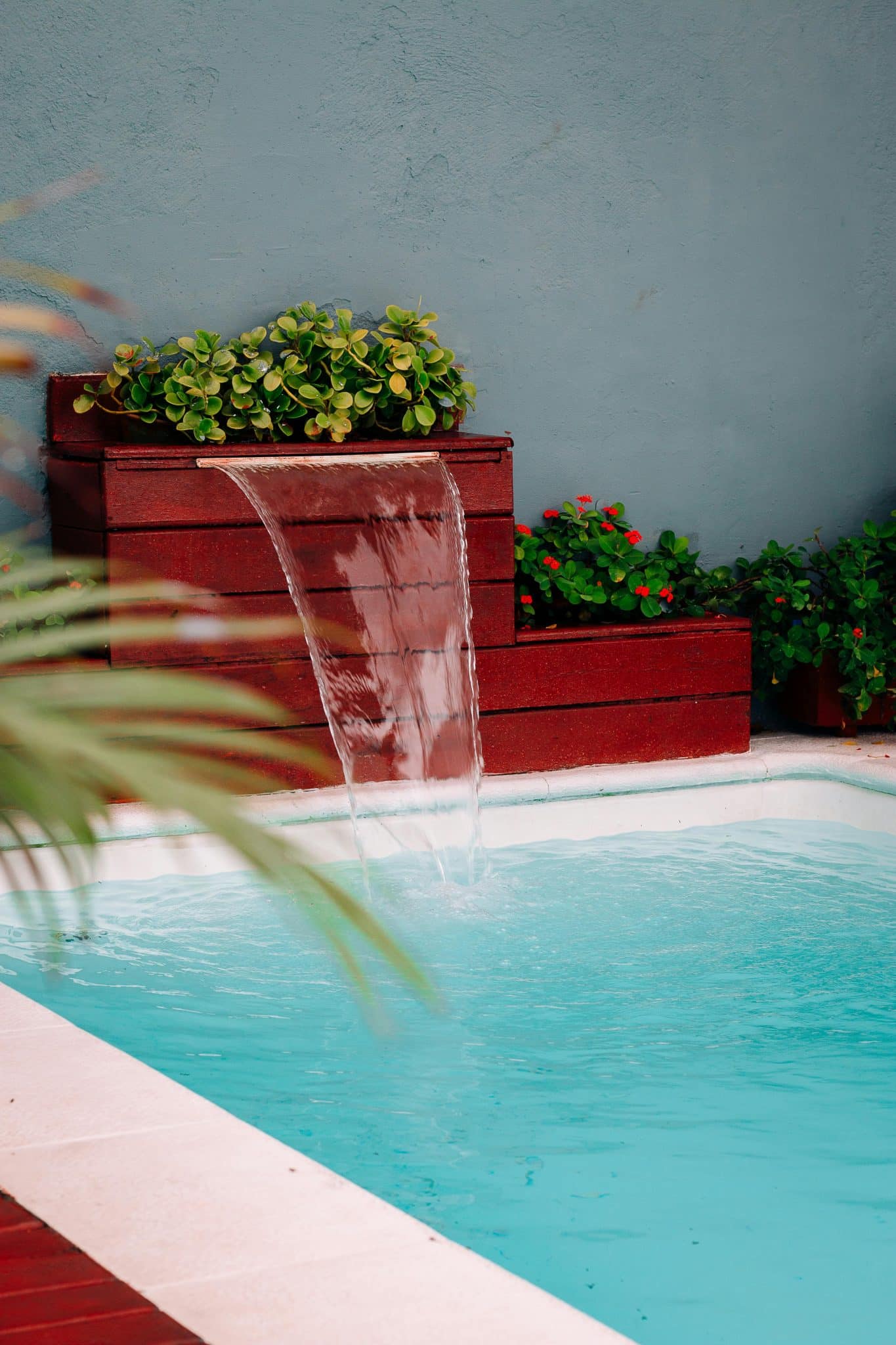The swimming pool selection from a wide range of offers is quite a complex task. But the trained eye of a customer often chooses two distinguished contenders of an infinite battle of chlorine vs saltwater-pools. Each of them requires attention, and of course, there’s only one for you to decide your variant.
A Symphony of Simplicity and Softness
The saltwater pool, often perceived as a beacon of convenience, operates with a saltwater generator at its core. This system elegantly converts salt into chlorine, ensuring a harmonious and low-maintenance environment for pool owners.
These pools attract with their ability to provide a more natural and gentle swimming experience. And whether you want to improve the whole attractiveness of your home, you can apply to interlock contractors Toronto.
Key highlights of saltwater pools
Saltwater pools stand out for their unique approach to pool maintenance and user comfort. The centerpiece of this system is the saltwater generator, which not only simplifies maintenance but also ensures a more pleasant swimming experience. These pools are becoming increasingly popular due to their long-term cost efficiency and gentle nature.
- Autonomous chlorine management — the generator regulates chlorine levels, minimizing the need for frequent manual testing and adjustments;
- Enhanced comfort — the water in saltwater pools is softer, which is less harsh on skin, eyes, and swimwear, thanks to lower chlorine levels;
- Long-term cost savings — despite a higher initial setup cost, ongoing expenses are often lower due to reduced need for chemical purchases.
Saltwater pools represent a harmonious blend of convenience and comfort. Their automated systems reduce the hassle of regular maintenance, while the gentler water quality offers a more enjoyable swimming experience. The initial investment is offset by the long-term savings, making saltwater pools an attractive option for those looking for a sustainable and user-friendly swimming environment.
Challenges and considerations
Offering numerous benefits, saltwater pools also come with their own set of challenges and considerations. It is important to be aware of these potential issues, such as the risk of corrosion due to salt, the need for diligent pH level management, and the initial financial investment required for installation.
- Corrosion potential — the presence of salt can lead to the corrosion of pool equipment and surfaces, necessitating vigilant maintenance and possible future repairs;
- pH level vigilance — consistent monitoring and adjustment of pH levels are crucial to maintaining the balance of the pool’s water and preventing corrosive damage;
- Significant initial cost — setting up a saltwater system entails a substantial initial expenditure, which should be factored into the overall budget for the pool.
While saltwater pools are celebrated for their ease of maintenance and user-friendly aspects, potential owners must consider the long-term implications of corrosion, the necessity of regular pH monitoring, and the upfront financial commitment. These factors play a pivotal role in determining whether a saltwater pool is the right choice for an individual’s needs and circumstances.
They require a conscious commitment to monitoring and an understanding of their unique maintenance needs. The initial investment might be high, but for those seeking a more natural swimming experience, the long-term benefits and cost savings can be quite rewarding.
Quite Different Swimming Experience
When weighing the merits of chlorine pools against those of saltwater pools, several key factors emerge that guide the decision-making process. Chlorine pools, known for their straightforward setup and lower initial costs, appeal to those who are budget-conscious but are willing to invest more time in active maintenance.
They are effective but can sometimes be harsher on the skin and eyes of swimmers. On the flip side, saltwater pools are lauded for their softer swimming experience and lower maintenance demands, although they do require a higher initial investment in setup. Both types ensure a clean and enjoyable swimming environment.
Ultimately, the choice between chlorine vs saltwater-pools hinges on individual considerations such as budget, health impacts, personal preference for the feel of the water, and readiness to commit to maintenance routines.
According to a reputable landscaping company in Toronto, chlorine pools have long been the standard in residential and public swimming pools, primarily due to their proven effectiveness in combating algae and pathogens.
This traditional approach to pool sanitation, relying on the regular addition of chlorine, offers a straightforward and familiar method for maintaining pool cleanliness. The absence of a need for a complex generator system in chlorine pools also means lower initial costs and energy expenditures.
Efficient and Practical Solution
Chlorine pools are a popular choice due to their effective sanitation method and simplified maintenance routines. They have been a reliable option for pool owners for many years, primarily because of chlorine’s ability to combat a wide range of contaminants like algae and bacteria. Additionally, these pools do not require a generator, which makes their setup and operation less complex and more energy-efficient.
- Effective sanitation — chlorine is a powerful agent against algae, bacteria, and pathogens, ensuring pool water remains hygienic;
- Simplified system — the absence of a generator means less complexity in the pool system, leading to reduced energy use and lower initial costs;
- Ease of maintenance — regular chlorine addition is a straightforward process, keeping the pool water consistently clean and swimmer-friendly.
Chlorine pools offer an efficient and practical solution for pool sanitation, characterized by their ease of maintenance and effective cleaning capabilities. While they require regular chemical addition, the process is straightforward, making chlorine pools a convenient option for those seeking a reliable and cost-effective swimming pool solution.
Manage pools properly
Ensuring the right balance of chemicals, particularly chlorine and pH levels, is crucial for maintaining a healthy swimming environment. However, the use of chlorine is not without its drawbacks, including the potential for skin and eye irritation and the formation of chloramines, which can impact swimmer health if not properly managed.
- Regular chemical balancing — consistent attention is needed to maintain the right chlorine and pH levels;
- Potential for irritation — high chlorine levels can lead to skin and eye irritation for some swimmers;
- Formation of chloramines — these byproducts of chlorine can lead to health issues and must be carefully managed.
While chlorine pools offer a tried-and-true method for keeping pool water clean and safe, they do require regular maintenance and careful chemical management. The potential for skin and eye irritation, along with the formation of chloramines, are important considerations for anyone thinking about installing a chlorine pool. Despite these factors, the cost-effectiveness and familiarity of chlorine pools continue to make them a popular choice almost as profitable as interlock driveway.
Conclusion
Discussing chlorine vs saltwater-pools, it becomes clear that the decision involves more than just looks or cost. It’s a comprehensive choice that combines factors like maintenance needs, environmental impact, health considerations, and personal lifestyle preferences.
Whether you lean towards the benefits of a saltwater pool or prefer the familiarity of a chlorine pool, this decision is deeply personal, reflecting individual preferences and promising many enjoyable moments in the water. Do not forget to follow building codes of your area to avoid any issues.

